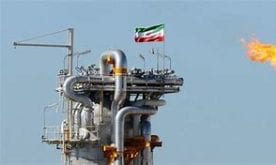RFL/RE – The Islamic Republic’s Supreme Leader Ayatollah Ali Khamenei called upon government officials to get serious about confronting corruption, but conceded that “fighting corruption and oppression is very difficult.”
Speaking at a gathering of Air Force commanders and personnel February 8, Khamenei said the fight against corruption should take priority for public officials.
“Combatting corruption and tyranny is an arduous undertaking and, as I said several years ago, corruption resembles a mythical seven-headed dragon which is very difficult to slay, yet, it should be done,” Khamenei said, according to the state-run Mehr News Agency (MNA).
The Supreme Leader’s comments come on the heels of protests over increasing economic hardship, monopolization by a few and lack of freedom that rocked the country.
In earlier comments Khamenei had described the protests voicing anger with corruption, poverty, and tyranny as a “foreign enemy’s counterattack,” financed by a “stinking rich government” in the region, an obvious reference to Saudi Arabia.
Khamenei insisted that the protesters were expressing dissatisfaction with corruption, not the Islamic Revolution and system of government itself.
“Our nation will withstand many deprivations, but we will not remain silent toward corruption and discrimination,” he said.
Recently both conservative and reformist lawmakers have spoken of “systematic corruption” in Iran. In the latest report by Transparency International, Iran is ranked 131 among 178 countries.
A poll published in Iran shows that 75 percent of respondents are unhappy with conditions prevailing in the country and 31 percent have given up hope that the Islamic Republic can be reformed and believe in fundamental changes. Although polling results on political issues cannot be reliable in Iran due to fear factors and possible manipulation, the fact that this poll was published is noteworthy.
Khamenei’s remarks on the 11-day protests that spread to more than 100 Iranian cities and shocked the Islamic establishment were much milder than those of his close allies.
Tehran’s provisional Friday Prayer Leader Ayatollah Ahmad Khatami said February 2 that according to Shia religious rules, the just sentence for those who “pour into the street” and “oppose the ruler” is the death penalty. He described those who rise against the establishment as “baghi,” an Arabic word that literally means tyrant or aggressor.
In recent years there have been numerous reports, accusations and legal cases exposing large-scale corruption by senior officials and their relatives. It extends from the banking sector to Tehran’s municipality, to former president Mahmoud Ahmadinejad and his close aides and even to President Hassan Rouhani’s brother.
The recent protests in Iran started on December 28, 2017 in the eastern city of Mashhad, with demonstrators expressing anger over price hikes, inflation, and corruption. The unrest soon spread throughout the country and the tone shifted, with protesters shouting slogans against the clerical rule in the country, including against the Supreme Leader himself.
 Shabtabnews In this dark night, I have lost my way – Arise from a corner, oh you the star of guidance.
Shabtabnews In this dark night, I have lost my way – Arise from a corner, oh you the star of guidance.


